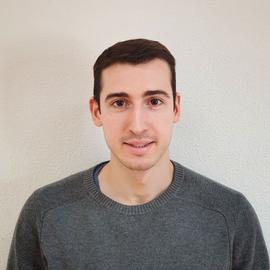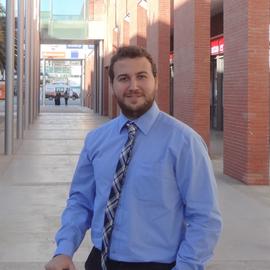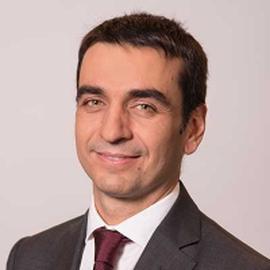Abstract
The quality of the solutions to a combinatorial optimization problem is usually measured using a mathematical function, named objective function. This function is also used to guide heuristic procedures through the solution space, helping to detect promising search directions (i.e., it helps to compare the quality of different solutions). However, this task becomes very hard when many solutions are evaluated with the same value by the objective function. This fact commonly occurs in either max-min/min-max optimization problems. In those situations, a key strategy relies on the introduction of an alternative objective function. This function helps to determine which solution is more promising when the compared ones achieve the same value of the original objective function. In this paper we study the Cyclic Cutwidth Minimization Problem (CCMP), which is an example of a min-max optimization problem. Particularly, we analyze the influence in the search of using alternative objective functions within local search procedures. Also, we propose two alternative objective functions for the CCMP and compare its performance against a previously introduced one. Finally, we explored the combination of more than one alternative function.
Publication
Conference of the Spanish Association for Artificial Intelligence

Artificial Intelligence Phd Student
Sergio Cavero was born Madrid (Spain) on September 24, 1997. He graduated in Software Engineering from Universidad Politécnica de Madrid in 2019. During his undergraduate studies he made a stay at the University of Bradford (UK). In addition, he was awarded twice with the ‘Beca de Excelencia of the Comunidad de Madrid, and also awarded for the Best Final Degree Project. Later, he completed a Master’s Degree in Artificial Intelligence at the same university (UPM) obtaining awards for Best Academic Record (‘Premio José Cuena’) and Best Master’s Thesis. He academic results lend him be beneficiary of one of the ‘Ayudas Para la Formación de Profesorado Universitario (FPU)’, funded by the Spanish Government. He is currently carrying out his doctoral thesis at the Universidad Rey Juan Carlos, supervised by Professors Abraham Duarte and Eduardo G. Pardo. His main research interests focus on the interface among Computer Science, Artificial Intelligence and Operations Research. Most of his publications deal with the development of metaheuristics procedures for optimization problems modeled by graphs.

Associate Professor
Miembro fundador del grupo de investigación GRAFO, cuya línea de investigación principal es el desarrollo de algoritmos para abordar problemas de optimización, temática sobre la que versa la Tesis Doctoral del investigador y en la que se enmarcan sus publicaciones más destacadas.

Full Professor
Abraham Duarte is Full Professor in the Computer Science Department at the Rey Juan Carlos University (Madrid, Spain). He has done extensive research in the interface between computer science, artificial intelligence, and operations research to develop solution methods based on Computational Intelligence (metaheuristics) for practical problems in operations-management areas such as logistics and supply chains, telecommunications, decision-making under uncertainty and optimization of simulated systems.